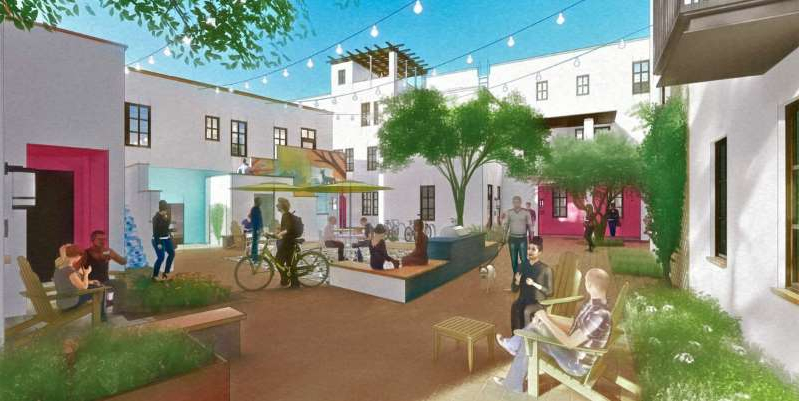Try and imagine your life without a car. No noisy engines, no busy asphalt streets, your grocery store within walking distance. This is the vision for Culdesac Tempe, a new development slated for 2020 in the fast-growing outskirts of Phoenix. The project will house 1,000 people, all without cars. The $140 million project was pioneered by Founders Ryan Johnson and Jeff Berens who want to make car-free living a convenient reality.
While the interior of the development will contain no roads, it will have parks and meandering paths that connect living spaces to a grocery store, a dog park, restaurants, and a gym. The community will also feature a light rail to connect it to downtown Tempe, the airport, and Arizona State University.
While residents must agree to be car-free, there will be perimeter roads for emergency vehicles and delivery access as well as some parking for visitors. Additionally, Culdesac will maintain a fleet of car-share vehicles for resident convenience.
Many other cities, such as Amsterdam, are moving away from car-based infrastructure. The goal of Culdesac is to be not only a place for people who don’t want cars but also a place where you just don’t need one.












